Black and Asian Celebs Are ‘Key to Changing Swimming Disparity’

John E. Kaye
- Published
- Home, Opinion & Analysis
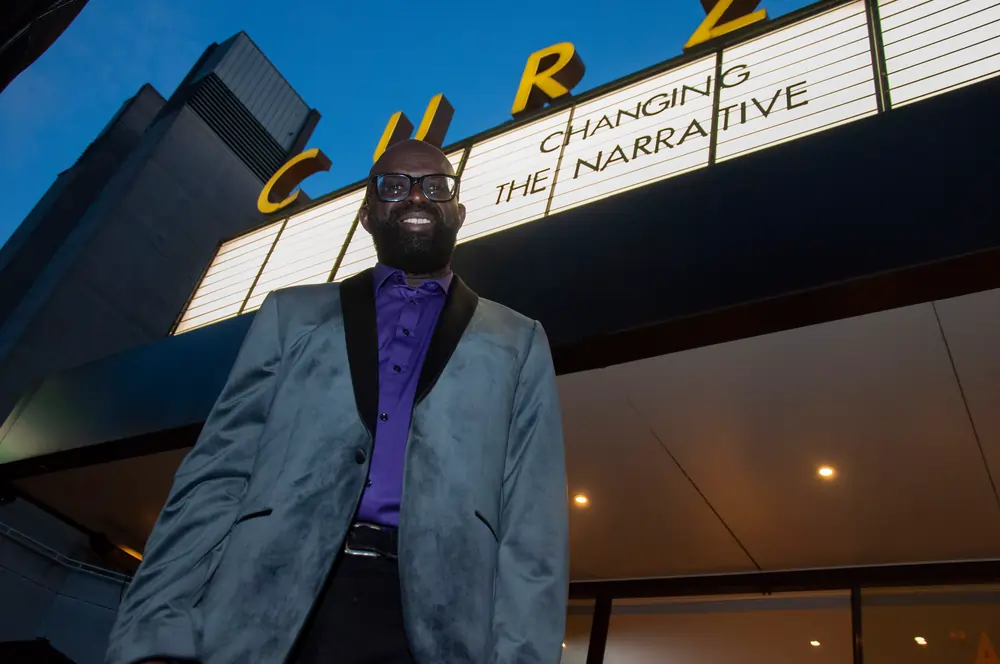
Filmmaker Ed Accura’s latest documentary, Changing the Narrative, shines a spotlight on the “shameful reality” that 97% of Black adults and 96% of Asian adults in England do not swim or participate in other water-related activities. But the groundbreaking series, which airs throughout October to mark Black History Month, received no support from the UK swimming or entertainment industries. In this exclusive for The European, Ed explains why meaningful change cannot occur without a collective effort – and why Black and Asian celebs are needed more than ever.
As a documentary filmmaker and co-founder of the Black Swimming Association, I have spent much of the last decade trying to understand the growing disparity between White and ethnic minority participation in British aquatics.
In England today, just three per cent of Black adults and 18 per cent of children swim regularly. The Asian community is only marginally less affected; in it, four per cent of adults and 21 per cent of children are regular swimmers.
The implications of these statistics are profound. Drowning remains one of the leading causes of accidental death among children in the UK, particularly in communities where swimming is not part of the cultural fabric. The National Child Mortality Database reported that children of Black heritage are 3.5 times more likely to drown compared to their White counterparts. This disparity underscores the urgent need for increased participation in swimming and water safety education within minority communities.
One of the primary barriers to swimming participation in these communities is the lack of visible role models. While Black British athletes like Alice Dearing, the first Black woman to represent England Swimming in the Olympics, have made significant strides in raising awareness and inspiring young swimmers, there remains a glaring absence of Black and Asian individuals in the sport, and fewer still on TV. Without celebrities or influencers that young people can relate to and aspire to be like, it becomes challenging for them to see swimming as an achievable goal.
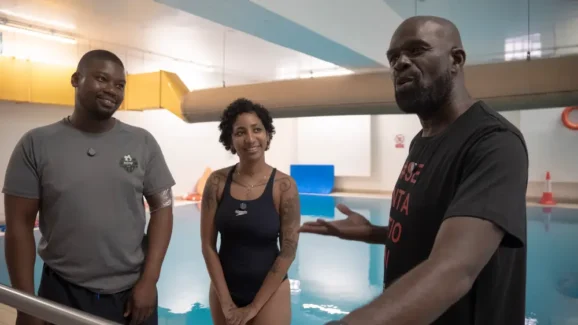
The content I have created to help bring this disparity to the fore – the Blacks Can’t Swim documentaries, screening events, and the We Don’t Talk About SWIM podcasts, amongst other things – has been widely utilised by the media and, in most cases, made freely available to the community and to the aquatics sector itself.
It was a surprise, therefore, that my attempts to garner support from the swimming industry and from influential Black figures in music and film have been in vain. I’ve reached out to several high-profile Black musicians, actors, and other celebrities, but their publicists, agents, managers, and even the celebrities themselves, have not responded at all.
This lack of engagement highlights a systemic neglect of this vital conversation. Many in the entertainment industry may not recognise the importance of their involvement in advocating for diversity in swimming, which can perpetuate the cycle of exclusion and disinterest. We need more champions from various sectors to step up and support initiatives that promote swimming as an accessible and essential life skill.
This is where my latest documentary series, Changing the Narrative, comes into play. Its aim is to challenge the prevailing perception that ‘Blacks can’t swim’ by showcasing the personal stories of young Black and Asian individuals in the UK. Through their experiences, we aim to illuminate the barriers they face—be it cultural stigmas, fears related to hair damage, or historical exclusion from aquatic spaces. By fostering conversations that dig deep into these issues, we hope to inspire a cultural shift that redefines swimming among ethnic minorities as an essential skill.
The five-part series, released in October to coincide with Black History Month, emphasises the importance of integrating swimming into the lives of young people. By highlighting their roles as future parents, leaders, and policymakers, we can inspire a new generation that sees swimming as essential for both health and safety. The youth of today will be the voices of tomorrow, capable of influencing their communities and promoting a culture of aquatic participation.
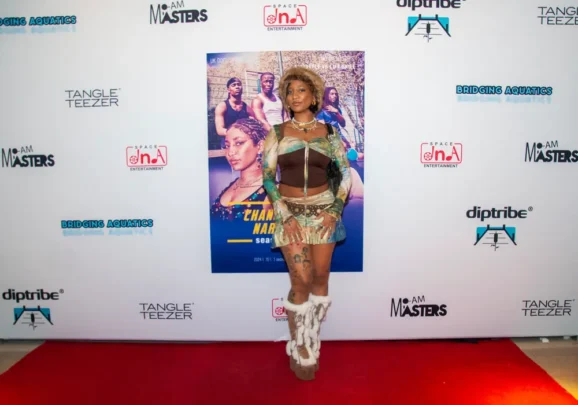
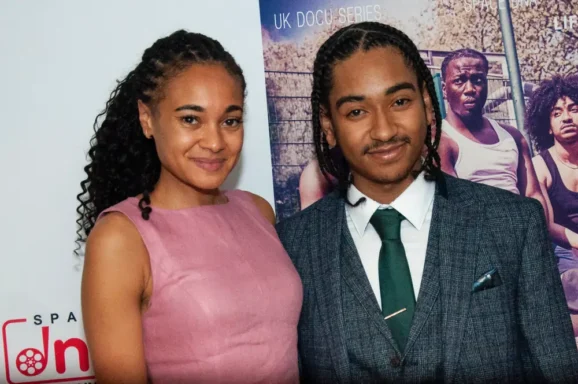
The films also explore the broader societal implications of low participation rates. Conversations about mental health, physical health, and cultural influences are essential components of this discussion. By addressing these topics, we provide a comprehensive view of the relationship between youth and aquatics, encouraging listeners to consider the interconnectedness of these issues.
But cultural shifts need more than just awareness. We must advocate for better access to swimming lessons and facilities in underserved areas. This means pushing for community programs that offer free or subsidised swimming lessons, creating safe and welcoming environments where children of colour feel encouraged to learn and participate. Partnerships with community organisations, local authorities, and schools can boost these efforts. The incredible Downside Fisher Youth Club, which features in the documentary, is a case in point.
Change also requires minority representation in aquatic sports. We need more initiatives that celebrate diversity within swimming. The swimming industry must also prioritise hiring more Black and Asian models in advertising campaigns, as their representation is currently alarmingly scarce. When young people from Black and Asian communities see individuals who look like them in promotional content, it helps normalise their presence in swimming and aquatic activities.
But to bring true lasting change – and fast – we need Black and Asian celebrities and influencers to lend their support. These high-profile individuals have the power to reach and engage huge swathes of the British community, often via platforms like Instagram and TikTok. Their support, combined with the power of social media, could be a life saver. Literally.
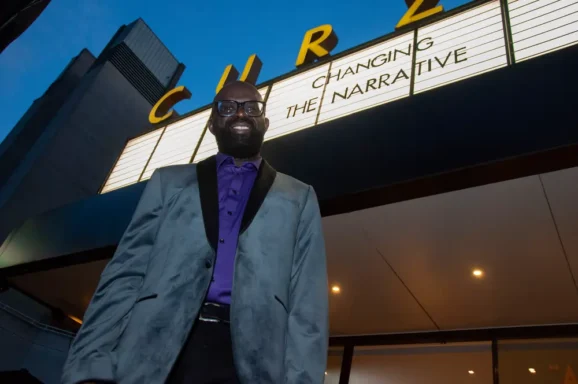
Ed Accura is known internationally as the co-founder of the Black Swimming Association (BSA), a non-for-profit organisation that aims to increase diversity to the world of aquatics through research, education and advocacy, and as the acclaimed filmmaker behind groundbreaking documentaries including Blacks Can’t Swim, a three-part series released on Amazon Prime, SKY, Apple TV and Google Plus to encourage more people from African, Caribbean and Asian heritage in England to learn how to swim. His latest five-part docuseries, Changing the Narrative, premiered on September 29th 2024 and explores the limited participation of African, Caribbean, and Asian communities in aquatics. It is released weekly throughout October to mark Black History Month.
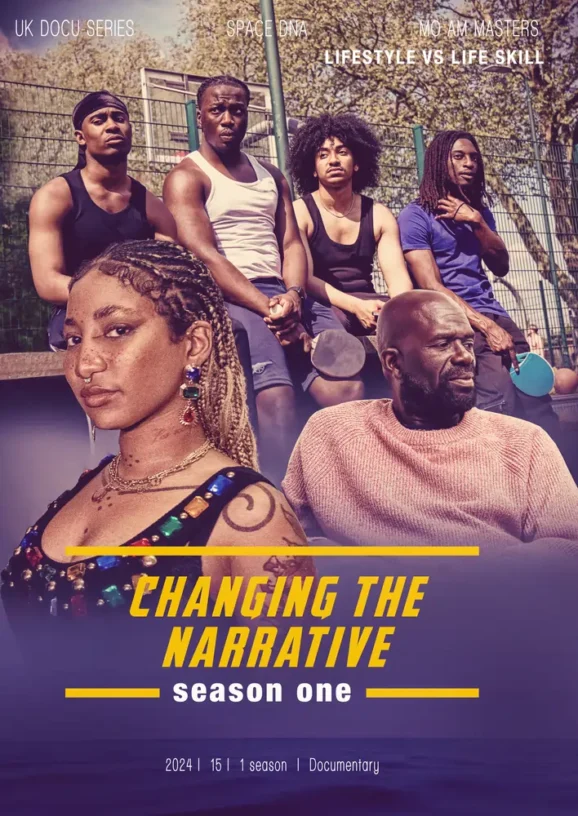
Main image: Filmmaker Ed Accura at the London premiere of Changing the Narrative
RECENT ARTICLES
-
 Europe cannot call itself ‘equal’ while disabled citizens are still fighting for access
Europe cannot call itself ‘equal’ while disabled citizens are still fighting for access -
 Is Europe regulating the future or forgetting to build it? The hidden flaw in digital sovereignty
Is Europe regulating the future or forgetting to build it? The hidden flaw in digital sovereignty -
 The era of easy markets is ending — here are the risks investors can no longer ignore
The era of easy markets is ending — here are the risks investors can no longer ignore -
 Is testosterone the new performance hack for executives?
Is testosterone the new performance hack for executives? -
 Can we regulate reality? AI, sovereignty and the battle over what counts as real
Can we regulate reality? AI, sovereignty and the battle over what counts as real -
 NATO gears up for conflict as transatlantic strains grow
NATO gears up for conflict as transatlantic strains grow -
 Facial recognition is leaving the US border — and we should be concerned
Facial recognition is leaving the US border — and we should be concerned -
 Wheelchair design is stuck in the past — and disabled people are paying the price
Wheelchair design is stuck in the past — and disabled people are paying the price -
 Why Europe still needs America
Why Europe still needs America -
 Why Europe’s finance apps must start borrowing from each other’s playbooks
Why Europe’s finance apps must start borrowing from each other’s playbooks -
 Why universities must set clear rules for AI use before trust in academia erodes
Why universities must set clear rules for AI use before trust in academia erodes -
 The lucky leader: six lessons on why fortune favours some and fails others
The lucky leader: six lessons on why fortune favours some and fails others -
 Reckon AI has cracked thinking? Think again
Reckon AI has cracked thinking? Think again -
 The new 10 year National Cancer Plan: fewer measures, more heart?
The new 10 year National Cancer Plan: fewer measures, more heart? -
 The Reese Witherspoon effect: how celebrity book clubs are rewriting the rules of publishing
The Reese Witherspoon effect: how celebrity book clubs are rewriting the rules of publishing -
 The legality of tax planning in an age of moral outrage
The legality of tax planning in an age of moral outrage -
 The limits of good intentions in public policy
The limits of good intentions in public policy -
 Are favouritism and fear holding back Germany’s rearmament?
Are favouritism and fear holding back Germany’s rearmament? -
 What bestseller lists really tell us — and why they shouldn’t be the only measure of a book’s worth
What bestseller lists really tell us — and why they shouldn’t be the only measure of a book’s worth -
 Why mere survival is no longer enough for children with brain tumours
Why mere survival is no longer enough for children with brain tumours -
 What Germany’s Energiewende teaches Europe about power, risk and reality
What Germany’s Energiewende teaches Europe about power, risk and reality -
 What the Monroe Doctrine actually said — and why Trump is invoking it now
What the Monroe Doctrine actually said — and why Trump is invoking it now -
 Love with responsibility: rethinking supply chains this Valentine’s Day
Love with responsibility: rethinking supply chains this Valentine’s Day -
 Why the India–EU trade deal matters far beyond diplomacy
Why the India–EU trade deal matters far beyond diplomacy -
 Why the countryside is far safer than we think - and why apex predators belong in it
Why the countryside is far safer than we think - and why apex predators belong in it


























